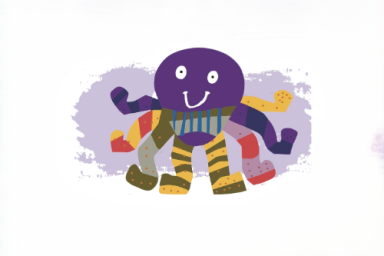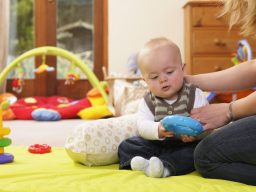Oshay's Brain Domains
- CIC -
Child Contact Centre
Services available at Oshay's Contact Centre, Ayr.

Supported Contact
- Keeps children in touch with parents if trust has broken down or communication is difficult. Parents do not have to meet and several families use facilities at the same time. Supported centres do not provide summaries of observations, either verbally or in writing.

Supervised Contact
- Is there a potential risk of harm? The centre or service ensures the physical safety and emotional well-being of children in a one-to-one observed setting.

Handover
- The centre is used for a short period as a drop off / pick up point. Again, parents do not have to meet.

Supervised Contact Assessment
- These can be used to identify the issues that have prevented contact from starting, caused it to break down, or made it unworkable.

Indirect
- Takes place at supervised centres and is used where direct contact is either unsafe, unworkable and or not in the child’s best interests. Contact can be in the form of letters, cards, gifts, emails or Teams.

Escorted Contact
- Takes place at supervised centres and is introduced once a regular, safe and sustainable pattern of contact has been established. Either within a child contact centre or elsewhere, involving the child and non-resident parent being accompanied on visits to places such as local parks, shops and restaurants.
Oshay's Contact Centre
In the aftermath of a breakup, it can sometimes be difficult for a parent who does not live with their children to maintain contact with them. Parents going through a tough divorce or separation, or arguing all the time, can find it too difficult to see each other. Children need a safe, welcoming place to spend time with their other parent or other significant family members.
Child Contact Centres can play an essential role in helping children affected by family breakdown to maintain relationships with the parent they no longer live with, or with other family members.
The central concept of a child contact centre is to offer a safe, friendly, neutral, child-centred environment for children to meet their non-resident parent or family member. They are designed to be a stepping stone to a more permanent arrangement for future contact.
You can spend time with your children in a supported or supervised context. You can also use the centres to collect and return the children to the other parent at the start and end of visits. Adults do not have to see or speak to each other at contact centres.
It’s generally better for children to remain in contact with both parents after separation or divorce. But this can be hard for many reasons. Some parents find it very difficult to agree to share their children’s time with their ex-partner or extended family members. There may be many reasons for this, but it might be simply that you and your ex-partner have great difficulty communicating and agreeing arrangements. Sometimes it’s too difficult for parents to see each other after separation. If that sounds like you, perhaps our child contact centres can help.
Child contact centres help children and parents by providing a safe, neutral environment away from high-conflict situations so that children can see their parent who does not live with them or other family members, such as grandparents.





What is a contact centre?
A place where a parent/relative can meet the child(ren) that he/she wishes to see. Contact centres are child centred and provide an impartial and independent service.
Contact centre services are available to all families regardless of financial or other circumstances of disadvantage.
In accordance with the UN Convention on the Rights of the Child, contact centres operate from the belief that children have a right to a relationship with both their parents.
Unless there are compelling reasons to do otherwise, contact centres exist to support the relationship between children and non-residential parents.
The Children (Scotland) Act 1995:
- Defines the relationship between parents and children in terms of parental responsibilities
- States parents who do not live with their children have a parental responsibility and right "to maintain personal relations and direct contact with the child on a regular basis."
- States parents have a duty to have regard to the views of the other parent and the views of the child concerned before making a major decision involving the child.
- The need for contact centres has arisen from the knowledge gained from research, which demonstrates that some children who lose all contact with one parent or significant individual after separation or divorce are likely to experience deleterious effects.
What our Oshay's team expects from all our clients
Here at team Oshay’s, we understand that sometimes not all clients are willing participants in the contact process, but where contact is court ordered there are responsibilities which must be observed.
Likewise, those parents who have chosen to use our services by mutual agreement are expected to follow our conditions of use.
Team Oshay's expects all clients to follow our terms and conditions (see below), treat staff and other centre clients with politeness and respect and to do likewise with the equipment and centre facilities provided for their use.
Terms & Conditions of Use
Children cannot be in the centre without either the Resident Adult or the Contact Adult present. Contact Adults are responsible for their children’s behaviour and wellbeing during contact sessions.
This includes:
- Ensuring your child is following the rules and any staff instruction.
- Safeguarding your child whilst playing.
- Meeting your child's needs i.e., nappy changing, bottle/ breast feeding etc.
- Making sure your child does not disrupt another contact visit.
When the session ends the adult who had contact must ensure any toys used are clean and tided away prior to leaving the centre.
Likewise, the person bringing the child for contact is responsible for the child's behaviour before and after contact. The adult with residence must prepare the child for contact.
Please note sometimes a parent stops contact because he or she feels that he or she is not getting enough money from the other parent to look after the child.
*This is not a reason to stop contact*
Any parent who finds bringing the child to the centre challenging can arrange to speak to a member of our support team.


It is your responsibility to:
- Encourage your child to have a good relationship with both parents.
- Help your child understand what is happening to their family. It is your job to explain this to them.
- Have a loving, open relationship with both parents. It is your job to encourage this. You may be separated from each other, but your child needs to know that he or she is not being separated from either of you.
- Show love, affection, and respect for both parents.
Your child should not be made to:
- Blame himself or herself for the breakup.
- Hear you criticize the other parent or anyone else involved.
- Turn against the other parent because they think that Is what you want.
You can help your child by:
- Thinking about how he or she feels about the breakup.
- Listen to what your child has to say about how he or she is feeling, and about what he or she thinks of any arrangements that have been made.
Oshay's Brain Domains
Unit 1.6
Ayr Business Centre
2 Beresford Terrace, Ayr
01292 261094 info@oshays.org www.oshays.org
We need your consent to load the translations
We use a third-party service to translate the website content that may collect data about your activity. Please review the details in the privacy policy and accept the service to view the translations.